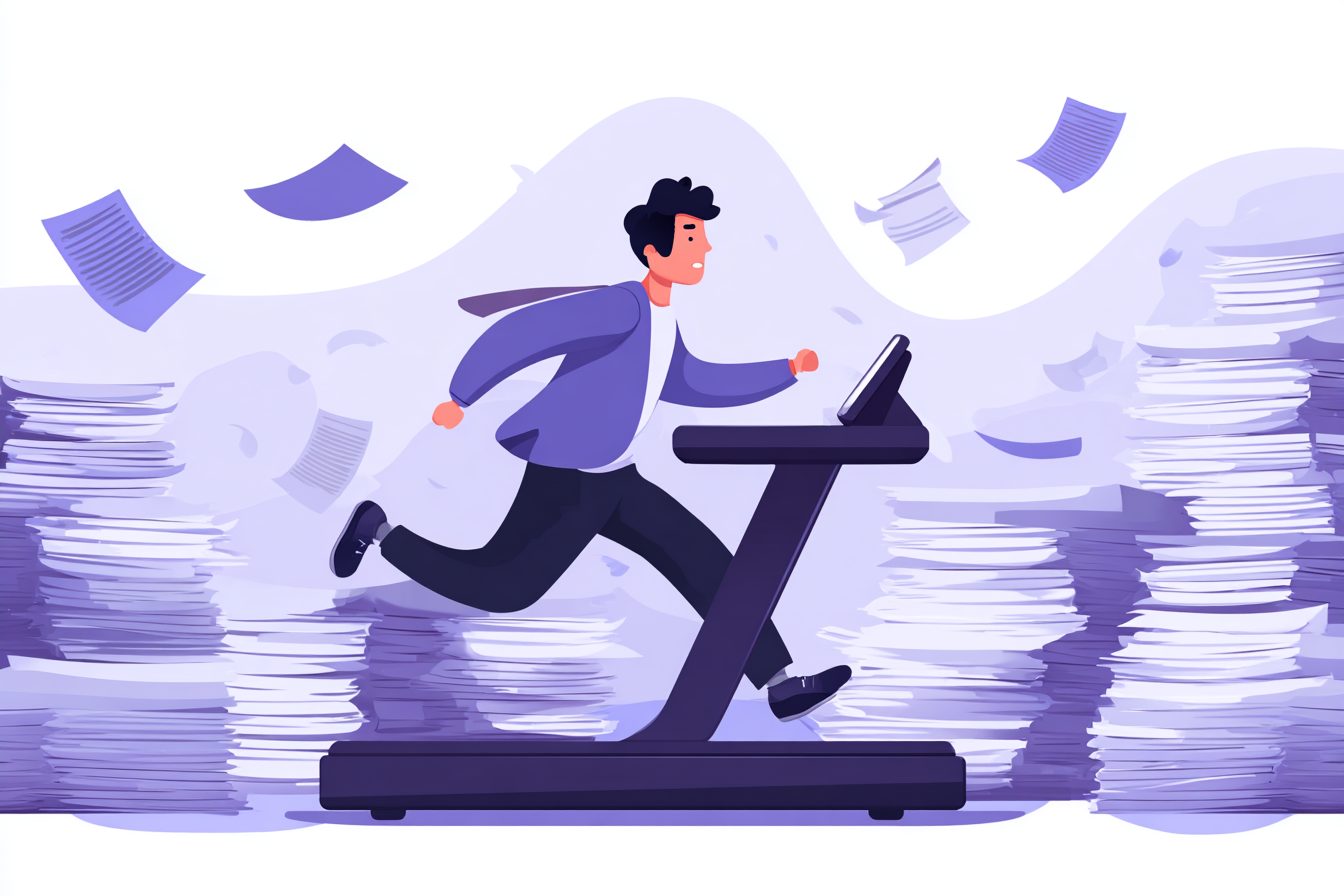Tariff Stress Test: How to Evaluate Your Small Business’s Resilience in the Face of Uncertainty

If you're feeling the squeeze from recent tariff hikes, you're far from alone. According to the National Retail Federation, tariff uncertainty is dramatically reshaping how small business owners operate. Small businesses across the country are having to think more thoroughly about inventory management, pricing strategies, and long-term growth plans.
Founders often assume operational challenges like tariffs are temporary bumps. But what happens when these disruptions keep coming? How do you know if your small business can weather the storm? Or, could it be time to seriously reassess your future?
This self-assessment blog is about taking an honest, thoughtful look at where your business stands right now. Grab your notebook, pour yourself a second cup of coffee, and take a moment to reflect.
Journaling Prompts: Your Tariff Resilience Check-In
1. Inventory and Cost Management
Inventory is a lifeline—but when tariffs spike unpredictably, this lifeline can quickly become an anchor. Many small businesses find their carefully calculated margins slipping away due to increased inventory costs caused by tariffs. You might notice your warehouse shelves filling up with inventory you can’t easily move, squeezing the life out of your margins. Now is the moment to pause and evaluate whether your inventory strategy is still viable or if adjustments are urgently needed.
"What percentage of my overall costs is directly impacted by tariffs?"
"If I had to liquidate inventory tomorrow, could my business sustain the losses?"
2. Vendor and Supply Chain Stability
Tariffs can strain vital vendor relationships and create chronic instability within your supply chain. Repeatedly shifting suppliers to offset rising tariffs often leads to declining product quality, logistical headaches, and rising operational expenses. The constant juggling act of managing vendors can eat away valuable resources, placing an additional burden on your already limited runway. As you navigate these challenges, take a moment to carefully assess your supply chain’s true health and resilience.
"How much time and money have I spent on managing vendor chaos in the past 12 months?"
"What would it take—in terms of money, time, and team bandwidth—to build a truly resilient supply chain?"
3. Product Pricing and Competitiveness
Increased tariffs directly affect your pricing power—and consequently, your competitive standing. As tariffs rise, the pressure to pass these costs onto customers grows. But there’s a limit to how much customers will accept before they turn elsewhere. Small businesses may find their unique value proposition diluted as tariffs undermine affordability, innovation, or perceived value. It’s crucial to regularly check in with your market positioning and ask if your product still holds the same allure despite these financial headwinds.
"Are my customers willing (or able) to absorb increased costs, or am I reaching a ceiling?"
"Is what we're offering still differentiated enough to survive these tariff pressures long-term?"
4. Financial Health and Future Viability
Tariffs complicate logistics and destabilize the financial foundation of your business. When unexpected cost increases disrupt your ability to forecast cash flow, it becomes harder to plan for growth, cover recurring expenses, or maintain financial obligations. The result? Constant volatility will gradually wear down your company’s ability to operate with confidence, and at some point, grit turns into grinding. Taking stock of your financial resilience is essential.
"How much uncertainty can my business handle before it impacts our core operations irreparably?"
"At what point does pushing through become unsustainable?"
5. Personal and Emotional Sustainability
Behind every business is a human being carrying the weight of uncertainty, stress, and nonstop decision-making. When operational challenges (like mounting tariff pressures) begin to erode your well-being, it’s time to ask hard but compassionate questions. Is the day-to-day experience of running this business still aligned with the life you envisioned when you started? And if not, what would stepping away mean for your peace of mind and personal future? Your emotional sustainability is just as important as your financial one.
"Is running this business in the current environment aligning with the life I envisioned as a founder?"
"If I closed my business today, how might it positively affect my personal life and future ambitions?"
Tariff Insights from the Experts
These prompts aren't just hypothetical. According to a recent NRF study, small business owners overwhelmingly cite unpredictability from tariffs as “the biggest barrier to growth.” Tariff-related stress isn't just a temporary discomfort; it may be a sustained threat to small businesses nationwide.
Taking time now to assess these factors can mean the difference between strategic adaptation or risking deeper losses.
Finding Clarity—and Possibly a New Beginning
If this assessment brought clarity, you're already ahead of the curve!
There's strength in recognizing when it's time to make tough calls about your business's future. Deciding to pivot or close isn't failure—it's responsible leadership, guided by the truth of your numbers, market conditions, and your emotional well-being.
At Starcycle, we've seen firsthand how closing a business, though challenging, can ultimately bring relief, empowerment, and space to rebuild anew. We’re here to ensure that your next step—should you choose to close—is guided, clear, and empowering. We handle the complexities, so you can focus on reclaiming your peace of mind and redefining your next chapter.
Tariffs and external challenges are uncontrollable, but your decisions are powerful. And remember: Ending one journey can often be the most courageous way to begin another.
If this reflection stirred something in you, we’re here to help you take the next step.
Ready to close this chapter with confidence?
Starcycle builds custom shutdown plans for any business starting at $299—no hidden fees, ever.
We handle the hard stuff so you can focus on what’s next.

